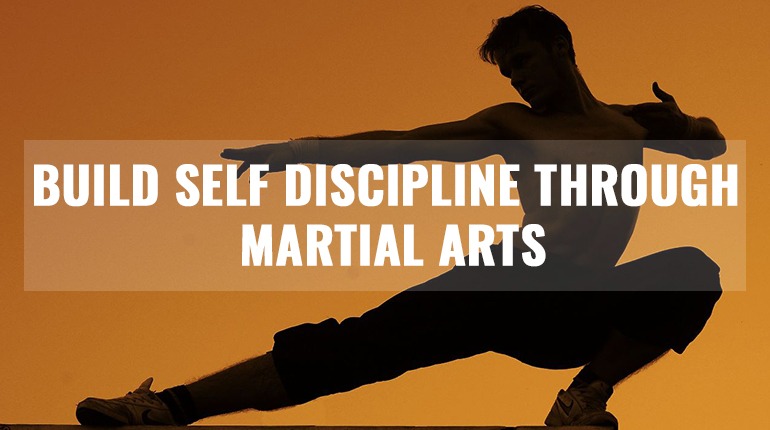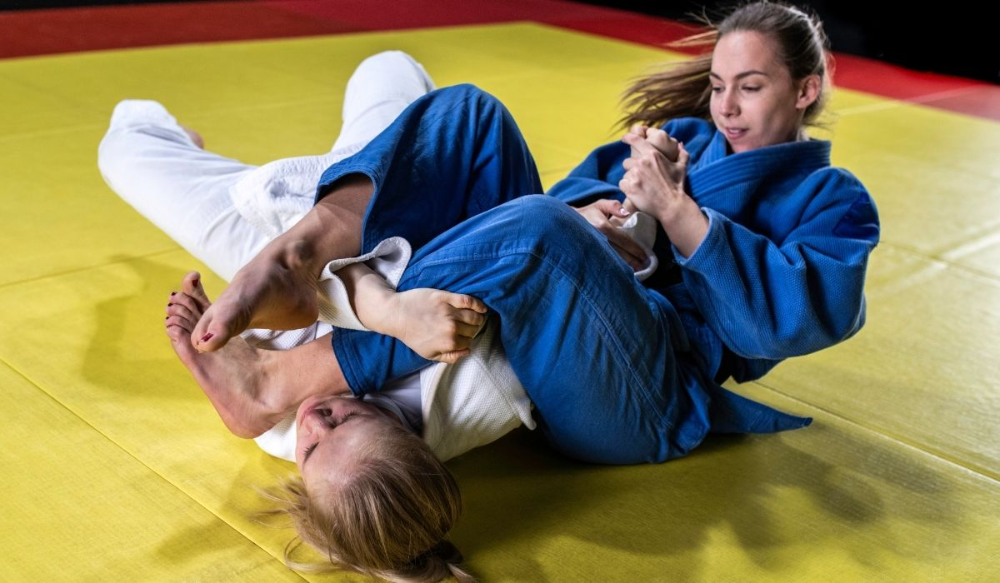How to Build Self Discipline Through Martial Arts and Boost Fitness

In a fast-paced and often chaotic world, the pursuit of self discipline has become vital to navigate through life’s challenges successfully. Martial arts have a rich history and diverse disciplines. They offer a unique and time-tested avenue to cultivate self-discipline. Beyond the physical aspects of combat, martial arts instill a sense of focus, and self-control. They act as a pillar of mental fortitude. In this blog, we will delve into the transformative power of martial arts and how to build self discipline by exploring the principles, practices, and benefits that make it a path to personal empowerment.
Understanding Self-Discipline in Martial Arts
At its core, self-discipline refers to the ability to control one’s impulses, emotions, and actions to achieve specific goals or maintain a higher standard of conduct. On the path to answering the question- how to build self discipline – understanding the potential of martial arts, with its rigorous training and adherence to principles, naturally fosters the development of self-discipline in practitioners. Here are some key aspects of self-discipline within martial arts:
1. Respect for Authority:
Traditional martial arts emphasize respect for masters/instructors, training partners, and the art itself. This respect cultivates humility, an essential element of self-discipline, as practitioners recognize that they are part of something greater than themselves.
2. Consistency and Perseverance:
Progress in martial arts is gradual and requires consistent practice over time. Through the journey of mastering techniques and skills, practitioners learn the value of perseverance and commitment.
3. Emotional Regulation:
The controlled and focused nature of martial arts teaches practitioners to manage their emotions effectively. Practicing self-discipline in moments of intense physical exertion helps individuals apply similar principles to emotional challenges in their daily lives.
4. Setting and Achieving Goals:
In martial arts, setting and accomplishing short-term and long-term goals is fundamental. This process nurtures a sense of responsibility and self-motivation.
5. Mental Focus and Concentration:
The complexity of martial arts techniques demands unwavering focus and concentration. This mental discipline can be transferred to other aspects of life, enhancing productivity and overall well-being.
Learning how to build Self Discipline Through Martial Arts
1. Increased Focus and Concentration:
The mental focus required in martial arts training helps practitioners sharpen their concentration, leading to improved focus in other areas of life, such as work or academic pursuits.
2. Emotional Regulation:
The controlled environment of martial arts training allows individuals to channel their emotions constructively, leading to better emotional regulation and reduced impulsive reactions in daily life.
3. Enhanced Self-Control:
Regular practice of self-discipline in martial arts enables practitioners to make healthier choices in their habits. This aids in nutrition, sleep, and time management.
4. Improved Confidence:
As practitioners progress in their martial arts journey, they gain confidence in their abilities and skills. This translates to increased self-assurance in various aspects of life.
5. Stress Reduction:
Engaging in martial arts provides an outlet for stress and anxiety, promoting mental well-being and overall emotional balance.
5 Martial Arts to build Self Discipline
There are many martial arts disciplines that emphasize self-discipline as a core component of their training. Here are five martial arts known for their focus on developing self-discipline:
1. Karate:
Originating in Japan, Karate is a traditional martial art that strongly emphasizes self-discipline, respect, and humility. Practitioners follow a strict code of conduct and etiquette. They learn to control their actions and emotions during training and in daily life.
2. Taekwondo:
Hailing from Korea, Taekwondo is renowned for its powerful kicks and dynamic techniques. Taekwondo places great importance on mental discipline. It mainly encourages practitioners to set and achieve goals, respect authority, and maintain self-control.
3. Aikido:
Aikido, developed in Japan, is often referred to as the “art of peace.” It focuses on redirecting an opponent’s energy rather than using force to defeat them. This philosophy encourages self-discipline, as practitioners learn to stay composed and non-aggressive even in challenging situations.
4. Judo:
Created in Japan, Judo is a grappling martial art that emphasizes technique, leverage, and timing over brute strength. Practitioners must exhibit self-discipline to remain patient and focused while executing precise techniques.
5. Brazilian Jiu-Jitsu (BJJ):

Originating from Brazil, BJJ is a ground-based martial art that relies on leverage and submissions to control opponents. Self-discipline is essential in BJJ, as practitioners must learn to be patient, strategize, and stay composed even in stressful grappling situations.
Conclusion
The journey of martial arts for self-discipline is transformative. Empowering individuals to harness their inner strength, overcome challenges, and thrive in the face of adversity. As practitioners embrace the principles of martial arts and apply them to their daily lives, they discover a heightened sense of personal empowerment and a path towards continuous self-improvement.
Understanding how to build discipline through martial arts has become an invaluable asset. It empowers individuals to achieve their goals, maintain composure in challenging situations. Martial arts aid cultivation of a balanced and fulfilling life. So, whether you are a seasoned martial artist or a novice exploring this realm, let martial arts be your guide on the path to empowerment.

